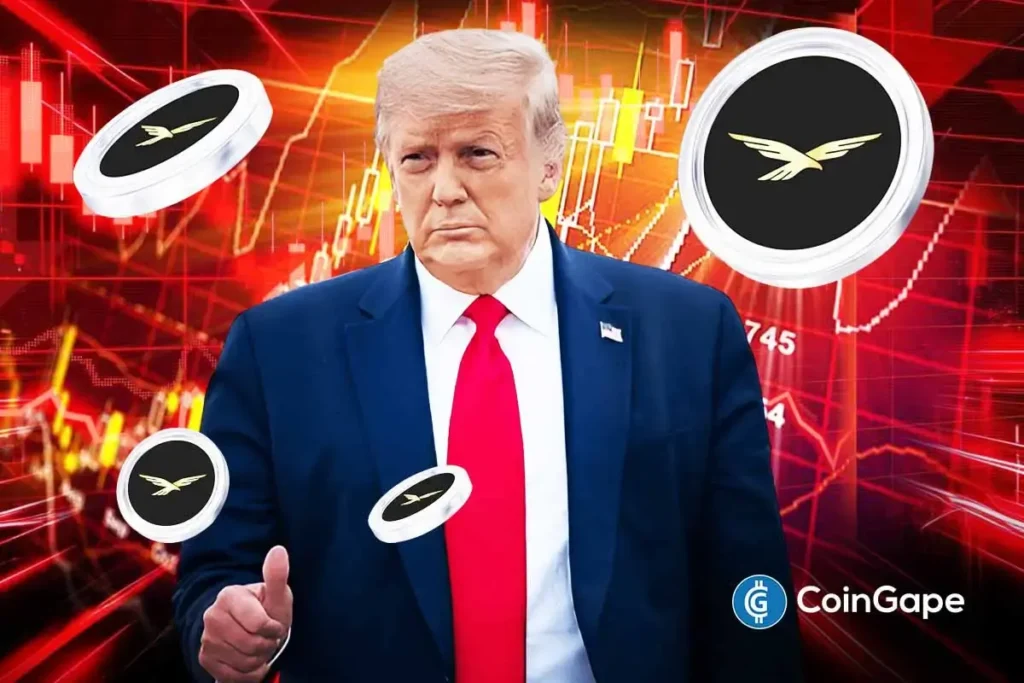World Liberty’s Response to Security Breach and Allegations of Illegal Sales: An In-Depth Analysis
In the ever-evolving landscape of cryptocurrency, World Liberty (WLFI) has found itself in a storm of controversies, marked by significant security breaches and allegations of illicit token sales. As the platform begins to unfreeze user funds following a significant token burn, it also faces scrutiny from U.S. Senators regarding its operational practices. This article delves into these events, providing insights into the implications for users and the broader crypto community.
Security Breach: A Wake-Up Call for World Liberty
Recently, World Liberty disclosed a troubling security breach that compromised a subset of user wallets prior to its official launch. The breach stemmed from phishing attacks and exposed seed phrases, largely attributed to third-party security vulnerabilities. In response, WLFI acted swiftly, confirming the freezing of compromised wallets as early as September to safeguard affected users.
Not only did the organization implement strict Know Your Customer (KYC) checks to verify the identity of wallet owners, but it also engineered new smart contract logic to safely transfer user balances to secure wallets. As part of this process, verified users will soon regain access to their funds, while unverified wallets will remain locked until those individuals engage with support channels. This dual approach reflects WLFI’s commitment to enhancing security protocols and restoring user trust in the platform.
Token Burn: A Strategic Move Amid Crisis
In an extraordinary measure to bolster confidence, World Liberty executed a token burn of approximately 166.667 million WLFI tokens, valued at over $22 million. This execution is deemed an emergency response to ongoing security threats, highlighting the company’s proactive stance. The tokens involved in this burn were reassigned to a recovery wallet, a crucial step in mitigating potential losses for users.
Industry analysts, including Arkham’s Emmett Gallic, have pointed out that the emergency function employed for the burn aims to address two critical scenarios: loss of wallet access by investors and the acquisition of tokens by malicious actors. This token burn represents the second significant intervention by World Liberty to manage suspicious activities surrounding its ecosystem, demonstrating a level of vigilance crucial in today’s high-stakes crypto environment.
Allegations of Illicit Token Sales to Hostile Nations
As World Liberty navigates the fallout from the security breach, it is now facing serious allegations regarding illegal token sales to entities in North Korea and Russia. U.S. Senators Elizabeth Warren and Jack Reed have commenced inquiries into the firm’s practices, pushing for investigations by the Department of Justice and the Treasury Department.
These developments arose from a report by Accountable.US, which alleges that WLFI distributed tokens to suspicious entities during its early distribution phase. In response, World Liberty has vigorously denied these claims, asserting that every presale participant underwent stringent anti-money laundering (AML) and KYC checks, filtering out potential buyers who could not meet their standards.
A Broader Context: Similarities with Binance Controversies
Interestingly, the scrutiny faced by World Liberty echoes criticisms directed at Binance, particularly following the Trump administration’s pardon of CEO Changpeng Zhao. Lawmakers have previously raised concerns about Binance’s connections to Trump-associated projects, paralleling the current allegations against WLFI.
These accusations highlight a growing trend within the cryptocurrency landscape, where regulatory bodies are intensifying scrutiny over financial practices connected to political figures. Such scrutiny reveals the challenges that crypto platforms face in maintaining compliance while navigating complex geopolitical dynamics.
Moving Forward: Restoring Trust and Security
In light of these challenges, World Liberty is charting a path forward focused on restoring user trust through enhanced security measures and transparent operations. The company’s commitment to rigorous KYC and AML procedures suggests it is not only aware of the existing vulnerabilities but is also taking steps to ensure that such issues are effectively managed in the future.
While the recovery of funds is a positive development for users, the ongoing investigations into its operations illustrate the precarious balance that crypto entities must maintain between innovation and regulatory compliance. As World Liberty continues to refine its processes and address existing concerns, the ultimate success of these endeavors will hinge upon its ability to demonstrate accountability and transparency to both users and regulatory bodies.
Conclusion: A Critical Moment for World Liberty
As World Liberty grapples with the repercussions of a significant security breach and allegations of illegal operations, it stands at a crucial juncture. Moving user funds post-token burn signifies a step towards recovery, yet the specter of scrutiny from lawmakers casts a long shadow over its operations.
In this environment, the emphasis on robust security protocols and transparent communication will be essential for World Liberty to regain user confidence and establish itself as a trustworthy player in the cryptocurrency space. The future of WLFI will depend on its ability to navigate these challenges effectively, ensuring that it not only meets but exceeds industry standards for security and regulation. As the landscape of cryptocurrency continues to evolve, the eyes of the community and regulators will be keenly focused on how World Liberty addresses this critical moment in its history.


